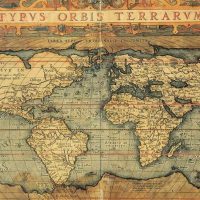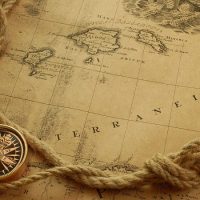Category: History Essay Examples
See our collection of history essay examples. These example essays are to help you understanding how to write a history essay. History is a fascinating puzzle with both personal and cultural significance. The past informs our lives, ideas, and expectations. Historians study the past to figure out what happened and how specific events and cultural developments affected individuals and societies. Also, see our list of history essay topics to find the one that interests you.
Lo-lang commandery was one of four commanderies established in Korea after the conquest of the northern and central part of the peninsula by China’s Han dynasty in 108 b.c.e. It was the most prosperous among the four commanderies and remained under Chinese control until 313 c.e. Contacts between …
Empress Lu’s given name was Zhi (Chi). Both she and her husband, Liu Bang (Liu Pang), founder of the Han dynasty in China (202 b.c.e.–220 c.e.), were born commoners. In 195 b.c.e. Liu Bang, who is known in history as Gaozu (Kao-tsu), meaning “high progenitor,” died of an …
Lucian came from the town of Samosata (modern-day Samsat, Turkey) in the Roman province of Syria. Likely of Semitic background, he learned of the Greek language and culture as an outsider. He had a very short apprenticeship as a sculptor under an uncle and then began his education …
Luoyang was a capital of China from c. 1100 b.c.e. to the mid-10th century c.e. The Zhou (Chou) dynasty initially ruled from the capital city Hao, located at the confluence of the Wei and Yellow Rivers. After defeating the last Shang king, King Wu of Zhou placed three …
Lyric poetry maintained a small but dedicated following in the Hellenistic world, especially from the seventh century b.c.e., and in the Greek-speaking Mediterranean, with a focus in Alexandria. It was relatively uncommon in the Latin world, although it was popular in China, Japan, and Persia. Many poems of …
Ma Yuan came from a famous family in northwestern China. Civil war raged in China after the death of the usurper Wang Mang in 23 c.e. A powerful general in the Wei River region, he joined the newly proclaimed emperor Guangwu (Kuang-wu), founder of the Eastern Han dynasty …
Alexander the Great’s dream of a united world speaking Greek and living a Greek lifestyle ran into trouble when it was applied to the Palestinian Jewish world. The Diadochi, generals who followed the short-lived grandeur of Alexander the Great, allotted the Asian share of Alexander’s conquests to the …
The Mahabharata is an enormous epic poem that now plays a central role in the Hindu religion. It tells the story of the great Bharata family and its war of succession. The poem was composed originally in Sanskrit. Scholarly analysis of the poem has led some to believe …
Maotun, or Maodun, was the most powerful leader of a nomadic people called the Xiongnu (Hsiung-nu), who lived north of the Yellow River valley; under his leadership the Xiongnu reached the zenith of power. He became shanyu (king) of the Xiongnu in 209 b.c.e. after killing his father, …
In 490 b.c.e. Greece was threatened by an invading Persian force led by Darius I, who was active in destroying the rebels in the Ionian Islands. Darius landed at Marathon to the northeast of Athens. He had previously captured the rebels of Eretria on Euboea, and Marathon was …
By common consent Ammianus Marcellinus was the last important ancient historian of the Roman Empire. Most authorities agree that he was born in Antioch in Syria (now Antakya, Turkey) late in the reign of Constantine the Great, although a case has been made for Tyre or Sidon. He …
The Mesopotamian city of Mari is identified with modern Tell Hariri, located on the west bank of the Euphrates River, 30 miles north of the border between Iraq and Syria. Its palace architecture has been beautifully preserved, and historical records provide a rare glimpse into upper Mesopotamian politics …
After the bloody revolt of the Gracchi, two emblematic figures concentrated the political destiny of the Roman Republic. The Senate initiated several foreign wars in order to withdraw the attention from the internal conflicts that had shaken the stability of the urbs. Gaius Marius (157–86 b.c.e.), born in …
The heroic response of early Christians to persecution led to a genre of literature that inspired later Christians to the same zeal. This genre is called martyrology, and it flourished after the Roman Empire made peace with the church under Constantine the Great. The spirituality inspired by martyrs …
Chandragupta Maurya founded the Mauryan Empire in 326 b.c.e. in northern India. His son Bindusara and grandson Ashoka (Asoka) continued his conquest that unified the entire subcontinent, with the exception of the southern tip, and part of Afghanistan into India’s first great empire. The political and cultural achievements …
Maximus the Confessor, also known as Maximus the Theologian and Maximus of Constantinople, was born in Constantinople to a noble Byzantine family and received a good education. He served as a secretary of the emperor Heraclius, became head of the imperial chancellery, and oversaw the comprehensive overhaul of …
During the Classic Period, which is divided into Early (250–600 c.e.), Late (600–800), and Terminal (800–900/1100), Maya civilization reached the pinnacle of its cultural, economic, and political development. From the 200s to the 400s c.e. dozens of autonomous city-states, many founded in the Preclassic, others early in the …
During the Early Preclassic (2000–1000 b.c.e.) the two major archaeological markers of civilization in the Maya zone first emerged in the Pacific and Caribbean coastal regions: permanently settled agricultural and/or maritime villages and pottery. The earliest known examples of Mesoamerican pottery have been found along the Pacific coast …
The Medes and Persians were both Indo-European speaking peoples and part of the broader Iranian groups. The Elamites have very different Mesopotamian roots. The Medes and Persians moved south to the Iranian high plateau in the second millennium b.c.e., although exactly when is the subject of much debate. …
In 324 b.c.e. Chandragupta Maurya unified northern India by defeating his rivals. He went on to war against the successor of Alexander the Great in Asia, Seleucus Nicator, expelling his forces from the borderlands of India. In 305 b.c.e. the two men concluded a treaty in which the …


